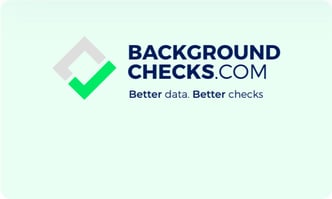What shows up on a criminal history check will vary based on the type of background check being used. Of course, all criminal history checks are designed to pull criminal records from public record sources. The specific information these searches yield depends on the source being searched.
For instance, a county criminal history search will only show
Bottom line, geography is an important factor when it comes to conducting criminal history searches. Criminal records are scattered across the country in different districts and
While the specific criminal records a background check finds will depend on location factors, most criminal history checks yield the same types of information. If a criminal background check finds a conviction, it will typically provide the following details about the
- Jurisdiction where the record is located
- Case number
- Defendant
- Charge
- Verdict
- Filing date
-
Degree ofoffense , such as amisdemeanor - Disposition
- Disposition date
- Sentence
Usually, employers and job seekers alike think of background checks as digging up convictions. However, in some cases, criminal charges that did not result in a formal guilty verdict will show up on the background check as well. Charges that are pending a verdict because the trial is still in progress are an example. Another example is a case where there has been some sort of deferred judgment. In these cases, the defendant has a chance to get the charges against them dismissed by going through some sort of diversion program—be it rehab, community service, or something similar. Even if the defendant is working toward that dismissal, the case will still show on his or her background check.
As for what won’t show up on a background check, there are two major categories.
The first category is expunged cases. Any criminal records that have been formally expunged or sealed by the court should not show on any criminal background check.
The second category is
Get monthly updates on Criminal Background Checks

About Michael Klazema The author
Michael Klazema is the lead author and editor for Dallas-based backgroundchecks.com with a focus on human resource and employment screening developments



